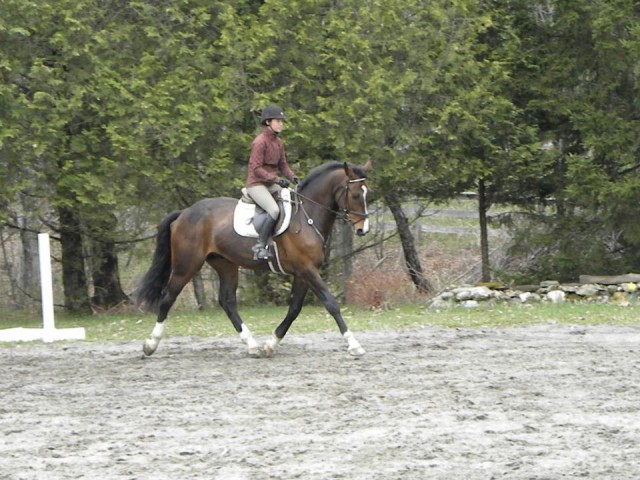In some ways, riding horses forces people to grow up quickly. There are endless responsibilities and major decisions that constantly need to be addressed. In my opinion, one of the most crucial components to riding revolves around learning how to become a more rational individual who reacts appropriately while in the saddle. Irrational riding never seems like a suitable option because, quite honestly, horses are not the most rational of creatures.
In other words, 1 irrational rider + 1 seemingly irrational horse does not = sane riding. Yes, we may adore our ponies, but they are reactive flight creatures. Therefore, how are we (the riders) meant to react or communicate with such animals, who may at times seem like they are responding to us in an irrational manner? Arguably, this level of rationalization is precisely what separates the mediocre riders from the best riders.
I would consider myself a fairly rational individual. However, to be perfectly honest, I spent countless years hanging out in Irrationalville — you know the town adjacent to KnowItAllTeenageVille? Learning how to react in an appropriate manner, as well as learning how to become more articulate with your riding, takes years. Some riders stumble across this realization earlier in life, but most, like myself, have to struggle through the teenage years before they can grasp this concept.
Either you were this person, you still are this person or you know this person: “My Henry HATES, and I mean HATES dressage.” Or, “Snowflake will never in a million years go near that bank.” Or, one of my favorites, “Buddy won’t do what I am asking him to do; therefore, he is being a BAD horse.” These scenarios are not arbitrary, and we know they exist because we created them. We all have our challenging days. Upper-level riders, lower-level riders, trail riders and everyone else in between experience “off” days, but learning to react in a sane and consistent manner will catapult your riding into the next sphere.
Quite honestly, half the “battles” we have with our horses are derived from not knowing the HOW or the WHAT. Again, this relates to becoming a more analytical and more insightful rider, which is a process that cannot be rushed. It takes time. However, once these issues come to light, and you can pinpoint the concerns you or your horse are experiencing as a team, you can react in a normal manner. For instance, instead of saying that “Buddy won’t do shoulder-in, therefore he is a BAD horse,” try thinking about how you can better explain or ask your questions to Buddy so that he better understands the situation.
Presumably, most of what our job as the rider entails is to set our horse up for success. We want to transfer a degree of confidence. Some horses have an unlimited amount of confidence and need less reassurance, while others need constant encouragement. In order to reassure our horses or set them up for success, we have to ask and explain to them in the clearest of manners. In other words, we can’t all of a sudden freak out and become exasperated when “Darla” is spooking, running sideways or does absolutely nothing. We have to react and respond to them in a logical manner. We have to keep our cool and, at times, show them the way. The more rational we can be with our riding, the more likely our horses will react in a positive manner.




















